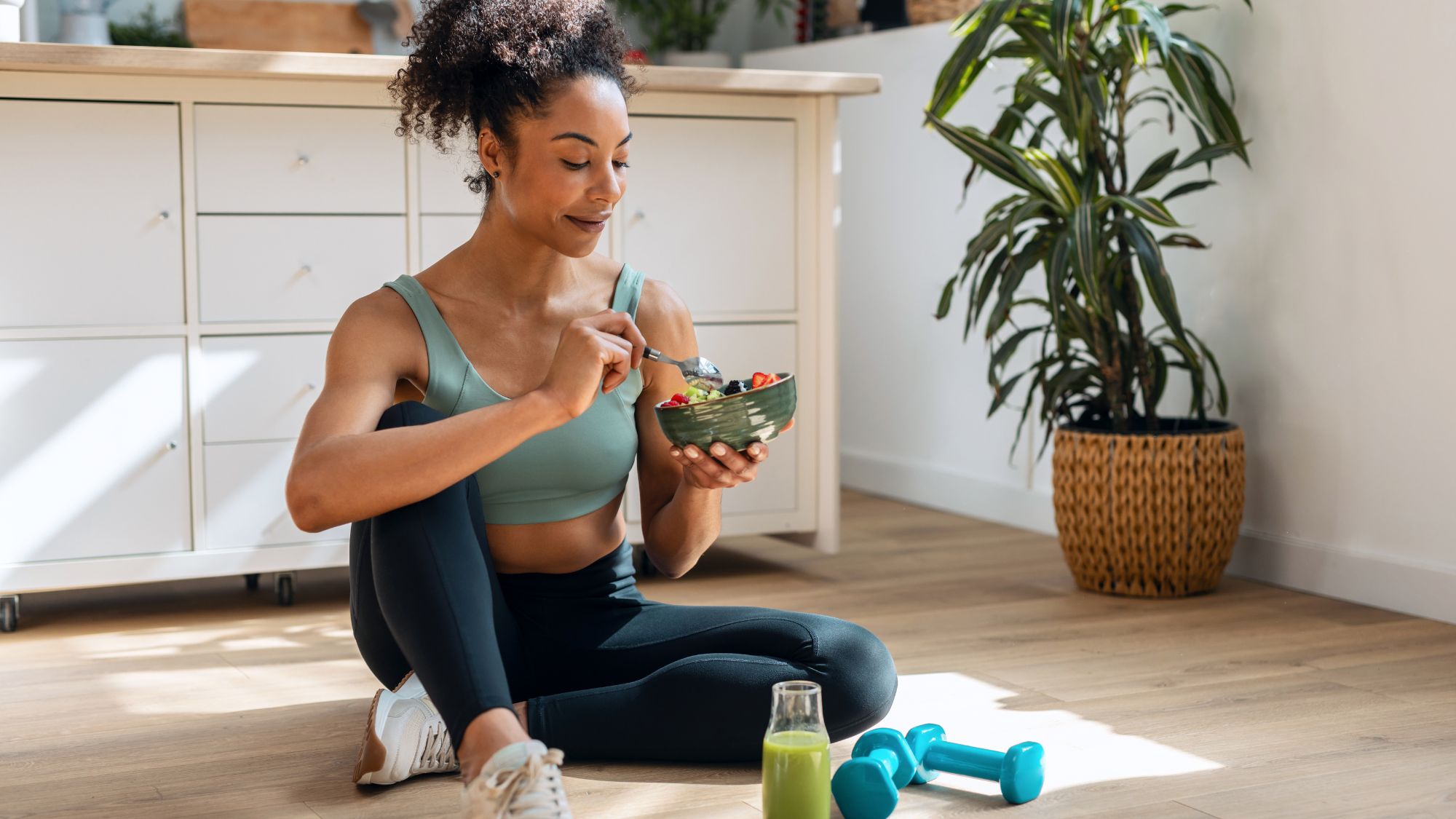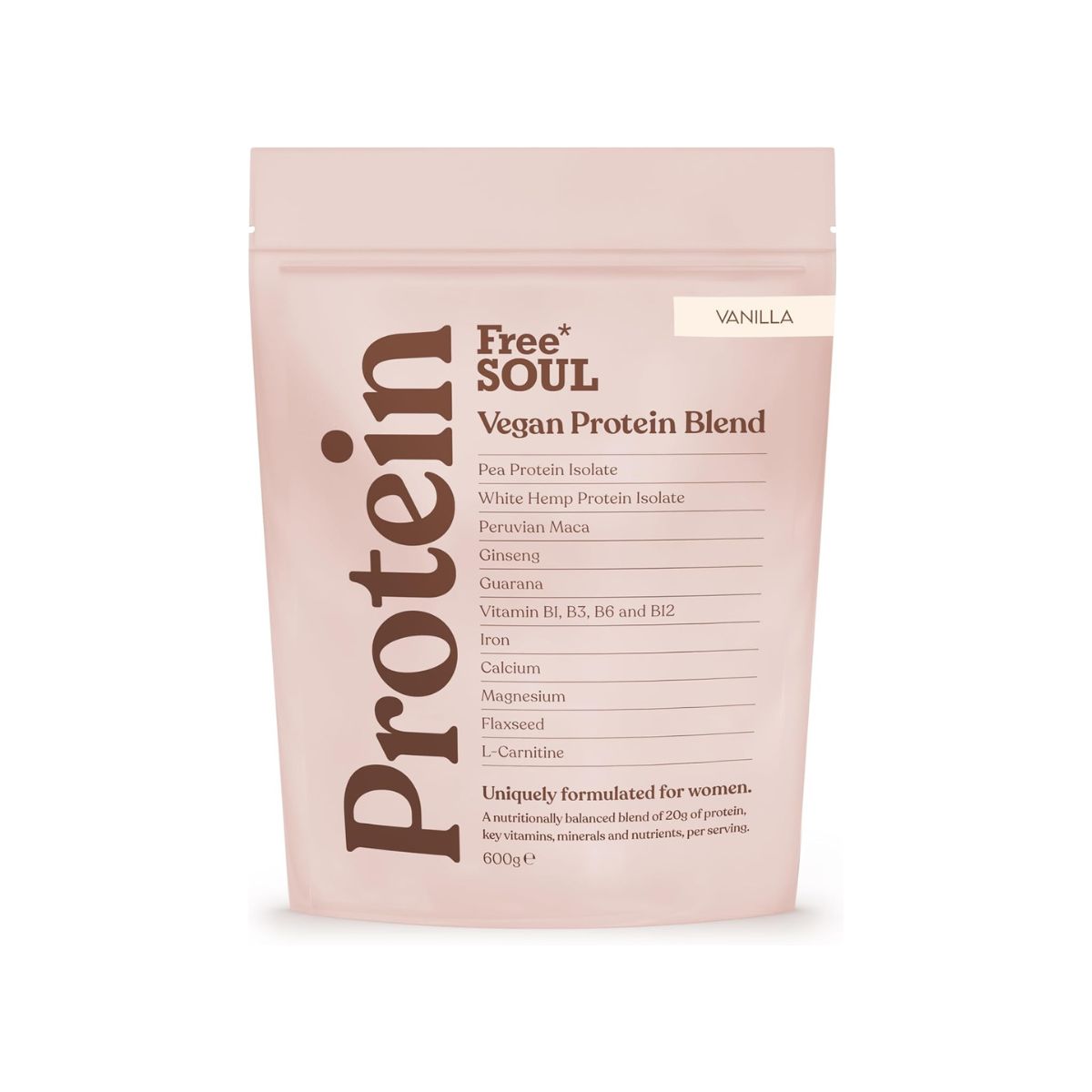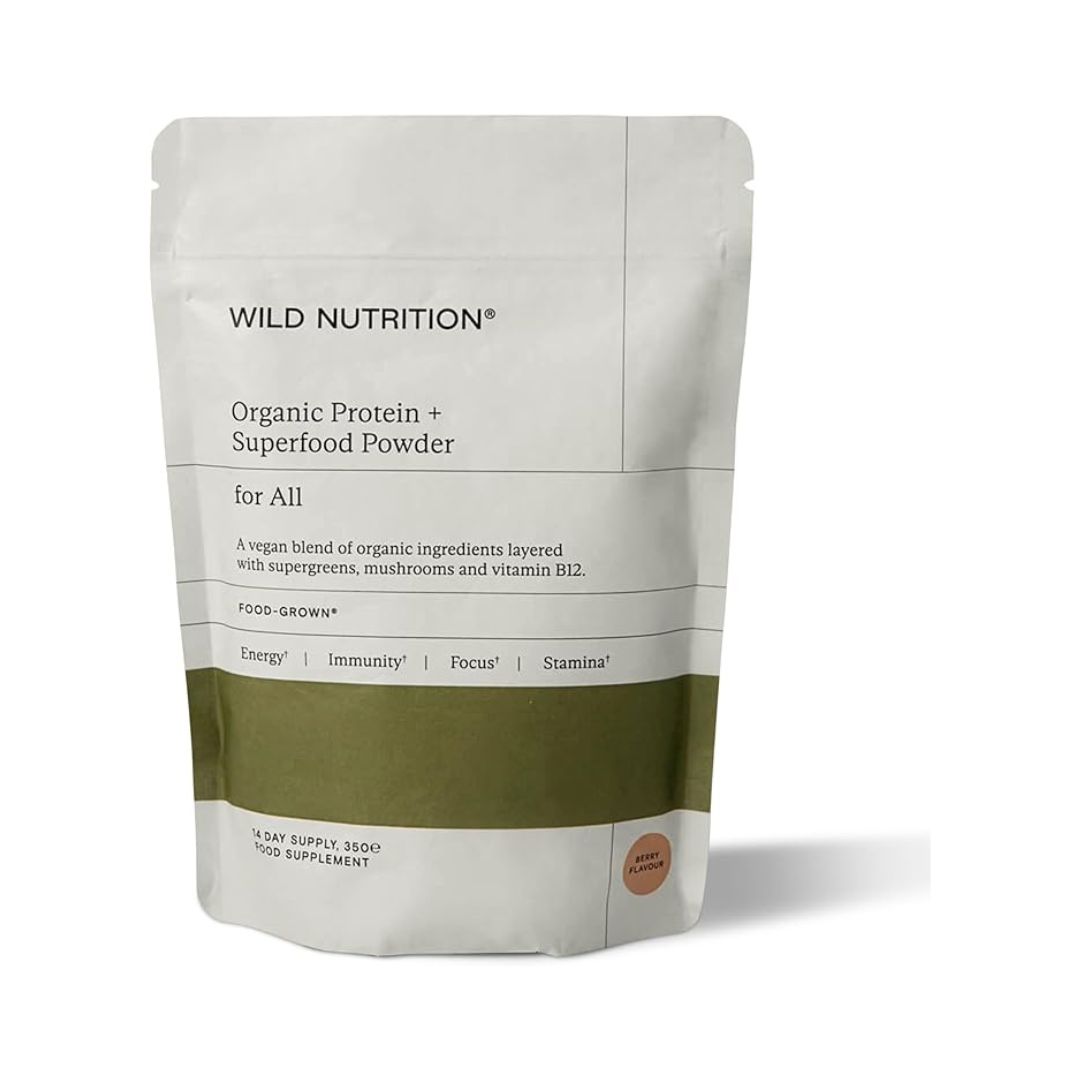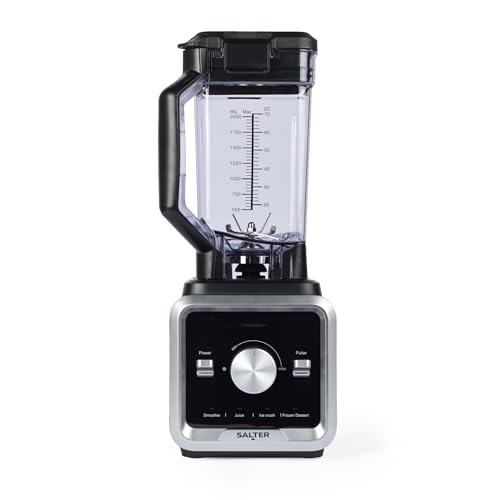Always Hungry? Try These 10 Foods That Contain More Protein Than Eggs, According to a Nutritionist
Stock your fridge with satiating goodness.


Celebrity news, beauty, fashion advice, and fascinating features, delivered straight to your inbox!
You are now subscribed
Your newsletter sign-up was successful
In a world where protein is hailed as the ultimate nutritional hero, it’s easy to see why it’s become a key focus in contemporary health discussions. And it's not without reason: protein is essential for building muscle, supporting immune health, and maintaining energy levels, all of which are crucial for overall wellbeing.
And for women, getting enough protein in our diets is especially important. "I often send my clients lists of food to try and eat at different points in their cycle," Michaella Mazzoni said to MC UK, a registered nutritionist with adenomyosis, endometriosis and Polycystic Ovary Syndrome. "Something they all have in common is high protein content! It's so important for hormonal health, helping to mitigate the ups and downs of fluctuating estrogen, blood sugar and cortisol throughout the month."
The proof is in the pudding: a 2020 study published in Nutrients found that premenopausal women who consumed higher amounts of protein experienced improved muscle strength and function. And an even more recent paper in Diabetes Care demonstrated that consuming whey protein before meals can reduce blood sugar surges in women with gestational diabetes.
So, the importance of protein in our diets isn't in doubt. That said, there’s no one-size-fits-all answer when it comes to nutrition. What works for one person might not work for another, so finding the right amount of protein for your body is key. But whether you’re looking to feel fuller for longer, balance your hormones, or simply boost your energy, protein-rich foods are a great place to start.
With that in mind, we’ve rounded up ten foods that pack more protein than eggs, according to top nutritionists. As a bonus, these foods can support your body in different phases of your cycle, so you can feel your best every day.
While you're here, we've got plenty of balanced nutritional content to keep you informed. Check out our round-up of the most common nutrition myths (dispelled by top dietitians), as well as signs that you're not getting enough protein in your diet. Keen to shop? Team MC UK have been testing, and these are the best protein powders, best clear proteins, and best vegan proteins.
10 foods that contain more protein than eggs, according to a top nutritionist
1. Greek yoghurt
A hero of healthy breakfast ideas, Greek yoghurt offers around 10g of protein per 100g, along with probiotics that support gut health. Whether you have it as a snack or as part of a meal, it's a versatile (and protein-rich) addition to your diet.
Celebrity news, beauty, fashion advice, and fascinating features, delivered straight to your inbox!
"I recommend opting for full-fat varieties of Greek yoghurt, as they're much easier to digest,” Mazzoni advises.
2. Cottage cheese
Cottage cheese has become a staple of my weekly grocery shop., and for good reason. It's a protein powerhouse, offering around 11g per 100g, and it also contains casein, a slow-digesting protein that’s perfect for keeping hunger at bay.
"The casein in cottage cheese makes it ideal for muscle repair," Dr. Richard Allison, nutritionist at Herbalife explains. "It's a great source of protein that will keep you fuller for longer."
3. Almonds
Aside from being crunchy and delicious, almonds are packed with protein (~21g per 100g) and healthy fats. "They also provide calcium, which is especially helpful for those not consuming dairy,” Mazzoni adds.
A handful of almonds can be a great mid-day snack, or you can sprinkle them on your salad for an extra protein boost. And as a bonus, they’re easy to carry around when you need a quick, satisfying bite.
4. Salmon
Adding oily fish like salmon to your diet is perfect if you’re looking to pack in some extra protein (~25g per 100g), and you'll also get a dose of heart-healthy omega-3 fatty acids as well. Omega-3 is one of the supplements recommended by nutritionists if you don't eat fish, because, as Mazzoni explains, it has some pretty important health benefits - particularly for women.
"Salmon is fantastic for inflammation support and hormone balance, especially before and during your period,” she told MC UK. Whether its grilled, baked, or added to a salad, salmon is a protein-dense meal that will help you feel more full and satisfied.
5. Lentils
Another of the powerhouse foods that contain more protein than eggs, lentils can easily be added to a variety of dishes. “They're rich in protein and iron, making them a nutrient-dense option, particularly for those with plant-based diets,” Dr. Allison says.
Add them to soups, salads, or curries - especially during the menstrual phase of the cycle, when iron-rich foods are a must.
6. Quinoa
Quinoa is often overlooked when it comes to sources of protein, but it actually contains all nine essential amino acids - making it the perfect choice for plant-based eaters (and more generally, anyone looking to up their protein intake).
Happily, it's also a great source of fibre and essential minerals like magnesium, which can help with muscle recovery. No delayed onset muscle soreness over here, please.
7. Chickpeas
Chickpeas have become one of my go-to afternoon snacks (I put them in the air fryer with a bit of olive oil and curry powder - yum). As you can imagine, I was pretty pleased to hear from the experts that chickpeas contain more protein than eggs.
"Chickpeas are rich in both protein and fiber," Dr. Allison told me. "This makes them a great option for sustaining energy and promoting digestive health.”
8. Peanut butter
Another one for the toast lovers, peanut butter is packed with protein (about 25g per 100g). It also contains lots of healthy fats that give you a steady source of energy throughout the day.
With the added benefit of magnesium, peanut butter can also help stabilise your mood, making it an ideal snack for the luteal phase (when cravings and mood swings are most common).
9. Pumpkin seeds
They may be small, but pumpkin seeds pack a powerful punch. "They're loaded with protein (~29.8g per 100g), and they also provide magnesium and zinc, which are vital for energy production and muscle function,” Dr. Allison explained to MC UK.
10. Chia seeds
Rounding up the list of foods that contain more protein than eggs is the humble chia seed. These tiny beads of goodness contain round 16.5g of protein per 100g, along with a good dose of omega-3 fatty acids and fibre.
Like pumpkin seeds, chia seeds can easily be added to smoothies, porridge, or granola. They're particularly beneficial during the follicular phase, helping to keep your energy levels stable as your body prepares for ovulation.
Looking for additional ways to get your protein in? Shop MC UK approved products here:

Protein powders are the easiest way to get your protein in, though they shouldn't be used as a replacement for protein-rich foods. I like this one from Free Soul, as it's designed with women in mind.
Are eggs a good source of protein?
"Eggs are undoubtedly a good source of protein, providing about 6-7g per egg, depending on its size (about 12.5g per 100g)," Dr. Allison says. "To put this into perspective, the average sedentary man requires around 55g of protein per day and the average sedentary women requires about 45g."
So, as Dr. Allison explains, while eggs are an excellent contribution to our daily protein intake, we should also be eating other foods that are higher in protein to meet our recommended daily allowance.

Katie Sims is a freelance journalist with an interest in all things health and wellbeing. Alongside Marie Claire, she writes for Liz Earle Wellbeing, Tom's Guide, Techradar, and Fit&Well. Whether it's sharing her thoughts on a new wellness trend, testing fitness kit, or speaking to the experts, she loves to write authentic content that cuts through the noise. When she's not writing, she'll likely be on a walk, at a Pilates class, or tackling her long list of books to read. See her writing portfolio here, or catch up with her over on Instagram.

